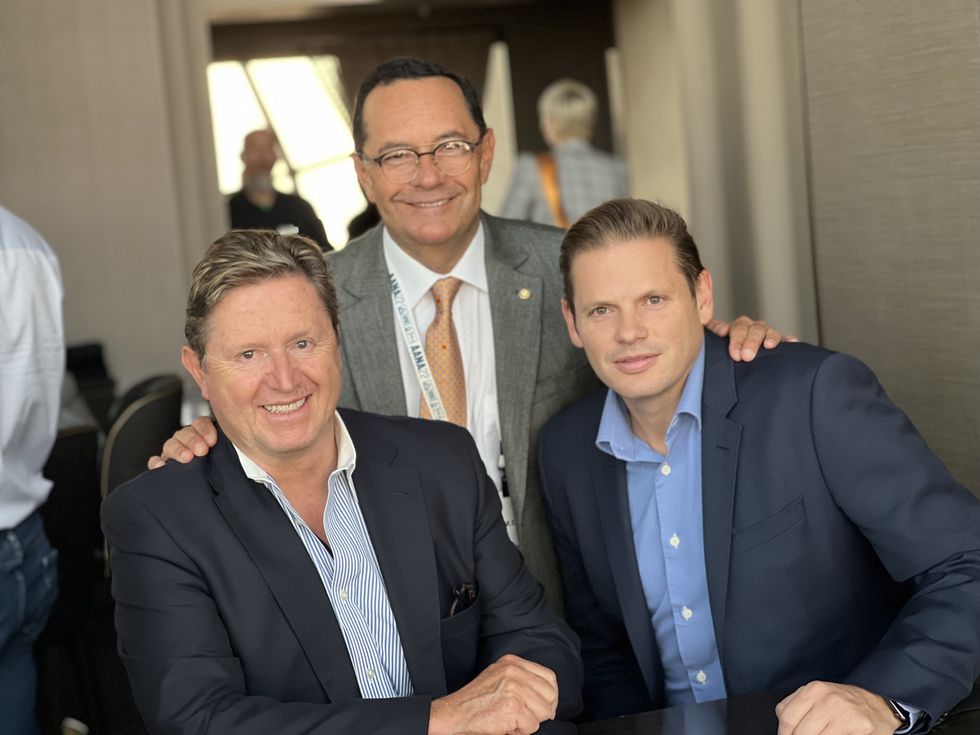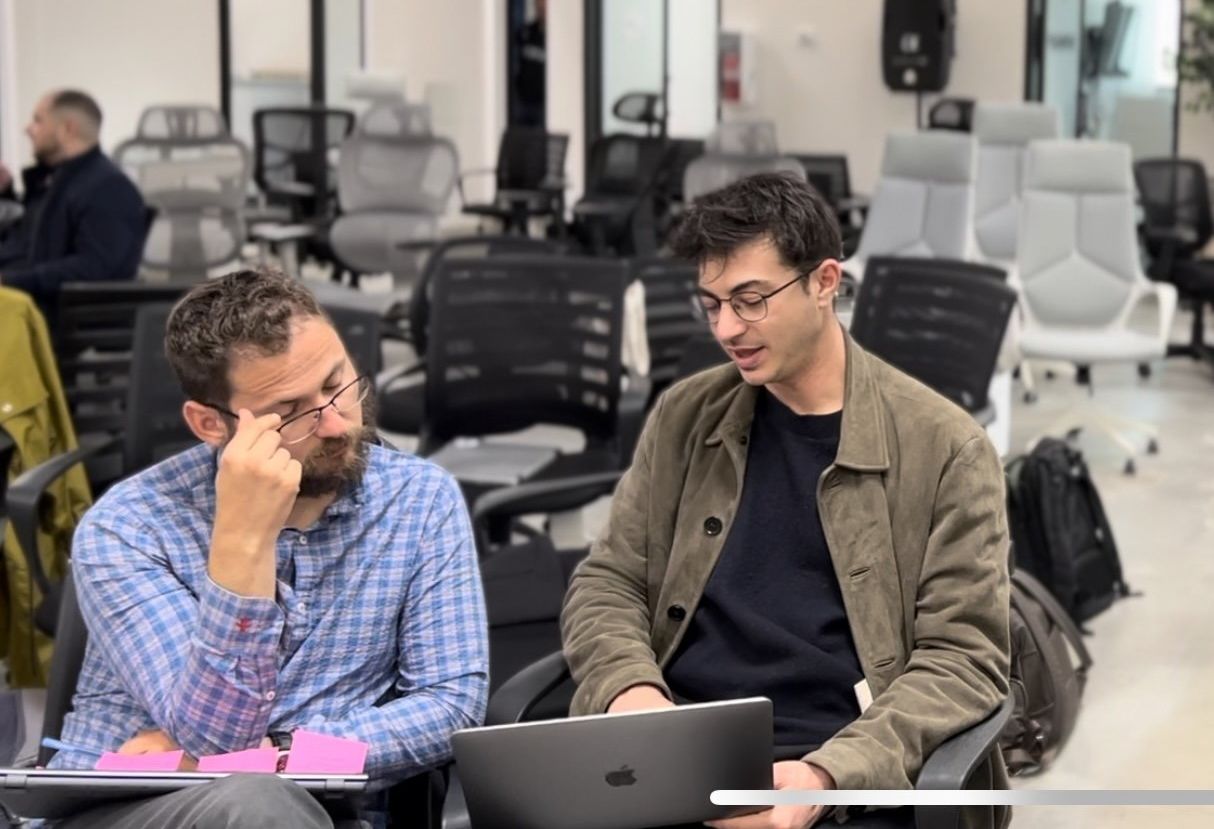This is the web version of dot.LA’s daily newsletter. Sign up to get the latest news on Southern California’s tech, startup and venture capital scene.
In September 2021, after decades of striving to live a healthier life, motivational speaker and consultant Tony Robbins decided to parlay his experience with biohacking into a startup. Alongside scientist and XPRIZE Foundation chairman Peter Diamandis and CEO Dugal Bain-Kim, Robbins launched Lifeforce with the goal of helping people optimize their health as they age.
The so-called “proactive care” Lifeforce offers, is targeted towards men and women in their mid-thirties and older – Bain-Kim told dot.LA about 52% of Lifeforce’s current user base is male – who are looking to tune up their health. Clientele aren’t the average adult going to a primary care doctor for a physical once a year, they are “health-motivated adults who want to understand their bodies and take control of how they function, how they feel, and how long they're likely to live,” Bain-Kim said.
Lifeforce operates as a subscription model; users pay $349 for a first round of blood tests and then a $129 monthly membership (this doesn’t include any supplements or additional therapies that aren’t covered by insurance). This works out to about $1,897 annually.
Bain-Kim said he hopes Lifeforce’s therapies can become reimbursable by insurance in the next couple of years. But in the meantime, Bain-Kim said he considers Lifeforce to be affordable if you consider that “it's not unusual for a concierge longevity practice to charge you $50,000 to $100,000 a year in this space.”
The initial blood testing is done by a trained phlebotomist who comes to the client’s home and measures for baselines in more than 40 biomarkers – indicators of mental and physical health, including metabolism, nutrients, and hormone balance. From there, Lifeforce assigns the patient a clinical and health coach to create a treatment plan, which usually involves a combination of lifestyle changes and supplements.
Expectedly, Bain-Kim is one of Lifeforce’s users. He said that when he joined the Lifeforce platform about a year ago, he was looking for help with low energy and immunity. Lifeforce told him he had low Vitamin D and low DHEA, the hormone that regulates production of testosterone and estrogen.
At the time, Bain-Kim, who was 30, said he then took his results to his longtime physician. They analyzed past physical exams and found “this issue particularly with my vitamin D, had been present for at least the last five years,” he said. He said that he was “literally one point on a 100 point scale away from being clinically deficient and no one had mentioned that to me, because there is this arbitrary [age] cutoff.”
According to Bain-Kim, “The physical data is only as good as the interpretation. Even though I had a [primary care physician] no one was having a conversation with me.” But he claimed that within a three-month span of using Lifeforce’s supplements, he felt more energetic.
That said, the biohacking field isn’t without controversy and neither is Lifeforce. In 2021, co-founder Diamandis apologized after hosting a conference in Culver City that became a superspreader event where he also sold fraudulent COVID-19 therapies including silver and ketamine lozenges.
Still, there’s no doubt that personal wellness beyond the average check-up is appealing to an increasing number of people. In an April 2021 report, McKinsey analysts found that the overall wellness market is worth $1.5 trillion, and that 88% of people worldwide said they want more personalization in their healthcare regimens.
LifeForce was incubated at Santa Monica-based venture capital firm M13’s Launchpad studio. Earlier this month, it raised a $12 million Series A co-led by M13 and Peterson Ventures to acquire new customers and build out its data, Bain-Kim said.
And while some treatments – like infusing the blood of your 17 year-old son, a tactic used by 45 year-old tech millionaire Bryan Johnson, who spends $2 million a year attempting to reverse his aging – are pretty out there and aren't FDA approved, there’s no denying that people are largely suspicious of healthcare. Its high costs and confusing system are to blame, and a Gallup poll this January found that less than half of Americans surveyed rated the nation’s healthcare system as good.
There’s a consistent downward trend here, too: The same poll shows that since 2012, overall public opinion on healthcare in the U.S. has plummeted. Costs were a huge part of this, and this year 76% of people surveyed were dissatisfied with how expensive healthcare is.
To that end, Bain-Kim said he’s more interested in reaching everyday people. “We’re not building this for the hardcore biohackers, who really do genuinely want to be the guinea pigs of things that might well in time still end up being proven out,” Bain-Kim said.
“We're not trying to be on the bleeding edge,” he added. We're trying to be progressive and give people access to things as soon as they're ready for [the] mainstream.”


 Gustavo De Greiff, Dr. Carlos Leal and Felipe RigbyTechstars
Gustavo De Greiff, Dr. Carlos Leal and Felipe RigbyTechstars iCardio.ai co-founders Roman Sandler and Joseph Sokol. Courtesy of Techstars
iCardio.ai co-founders Roman Sandler and Joseph Sokol. Courtesy of Techstars